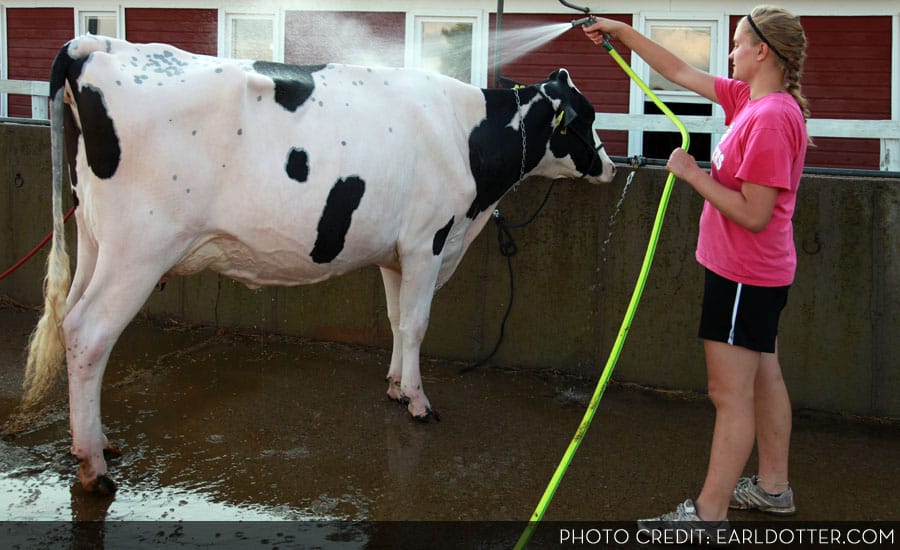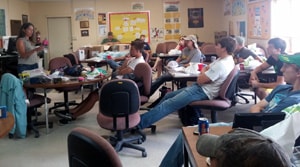
Project Description
View All Funded Pilot Projects
2016-present
Young workers aged 18-23 years old contribute significantly to the agricultural workforce and are at risk to occupational health risks, including environmental exposures. Many of these workers are employed in large operations or family farms and potentially exposed to gases from livestock production, manure storage, combustion engines, chemicals, or spoiled grain.
A majority (62%) of 223 college students participating in AgriSafe’s Invest in your Health programs at targeted Midwest agricultural colleges work in animal confinement, but only one in four have used respiratory protection for gas exposures, despite research indicating health effects of low gas exposures in livestock buildings or farm shops. Further, they are unaware of the value of air sampling for human health, even if their farm monitors conditions for animal health.
This project will develop, test, and instruct a new educational module to demonstrate and train students in using low-cost industrial hygiene air sampling equipment. The module will be delivered at colleges currently partnering in Invest in Your Health programs, and it will provide hands-on demonstration at college farms as part of overall management and employee health. Students will learn to take air quality tests for routine tasks and recognize work scenarios with potentially lethal conditions. Students will take industrial hygiene “tool kits” home to assess gas levels in buildings at their family farms and will report back with test results and barriers to use.
This proposal follows the One Health model because it includes interdisciplinary collaborations in health care for humans, animals and the environment.
 2016 UPDATE:
2016 UPDATE:A pilot class was held in July 2016 at the Iowa State University 450 Farm. The purpose of this class was to gather user feedback on the instructional material. Stephanie Leonard and Carolyn Sheridan conducted interviews with student confinement producers to determine beliefs and cultural expectations related to air sampling methods. This pilot class assisted in refining the final training interventions scheduled for Fall 2016.


